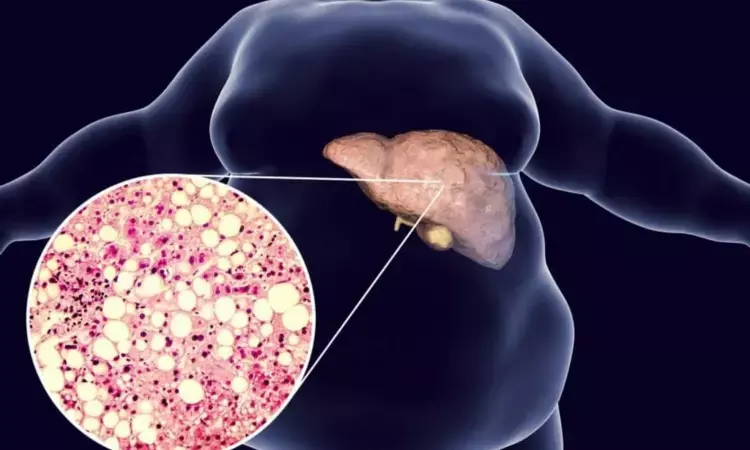- Home
- Medical news & Guidelines
- Anesthesiology
- Cardiology and CTVS
- Critical Care
- Dentistry
- Dermatology
- Diabetes and Endocrinology
- ENT
- Gastroenterology
- Medicine
- Nephrology
- Neurology
- Obstretics-Gynaecology
- Oncology
- Ophthalmology
- Orthopaedics
- Pediatrics-Neonatology
- Psychiatry
- Pulmonology
- Radiology
- Surgery
- Urology
- Laboratory Medicine
- Diet
- Nursing
- Paramedical
- Physiotherapy
- Health news
- Fact Check
- Bone Health Fact Check
- Brain Health Fact Check
- Cancer Related Fact Check
- Child Care Fact Check
- Dental and oral health fact check
- Diabetes and metabolic health fact check
- Diet and Nutrition Fact Check
- Eye and ENT Care Fact Check
- Fitness fact check
- Gut health fact check
- Heart health fact check
- Kidney health fact check
- Medical education fact check
- Men's health fact check
- Respiratory fact check
- Skin and hair care fact check
- Vaccine and Immunization fact check
- Women's health fact check
- AYUSH
- State News
- Andaman and Nicobar Islands
- Andhra Pradesh
- Arunachal Pradesh
- Assam
- Bihar
- Chandigarh
- Chattisgarh
- Dadra and Nagar Haveli
- Daman and Diu
- Delhi
- Goa
- Gujarat
- Haryana
- Himachal Pradesh
- Jammu & Kashmir
- Jharkhand
- Karnataka
- Kerala
- Ladakh
- Lakshadweep
- Madhya Pradesh
- Maharashtra
- Manipur
- Meghalaya
- Mizoram
- Nagaland
- Odisha
- Puducherry
- Punjab
- Rajasthan
- Sikkim
- Tamil Nadu
- Telangana
- Tripura
- Uttar Pradesh
- Uttrakhand
- West Bengal
- Medical Education
- Industry
Hydroxychloroquine may reduce NAFLD risk in patients with rheumatoid arthritis

Taiwan: Treating rheumatoid arthritis with hydroxychloroquine (HCQ) reduces the risk of nonalcoholic fatty liver disease (NAFLD), particularly in men and women who are 50 years old and younger. The findings were presented at ACR Convergence 2023, the American College of Rheumatology's (ACR) annual meeting.
Rheumatoid arthritis (RA) is a systemic autoimmune inflammatory disease marked by chronic joint inflammation leading to joint damage and loss of function. It can also affect tissues and organs outside the joints, including (but not limited to) the eyes, heart, and lungs.
Although not a classic complication of RA, nonalcoholic fatty liver disease (NAFLD or MAFLD), is prevalent among RA patients, affecting about 35% of men and 22% of women. Previous research suggested that HCQ might lower the risk, so rheumatologist Hsin-Hua Chen, MD, PhD, and colleagues at Taichung Veterans General Hospital in Taichung City, Tawain, decided to explore the association between HCQ and NAFLD in a nationwide RA cohort.
The researchers drew on population-based claims data from the National Health Insurance Research Database in Taiwan from 2000 to 2020. The study included more than 21,000 patients, with a mean standard deviation age of 51.9, and the ratio of women to men was 3 to 2.
A time-varying, multivariable Cox regression model was used to estimate the adjusted hazard ratios with a 95% confidence interval for an association between HCQ and NAFLD, after adjusting for potential confounders. Subgroup analyses looked at patients based on sex and age (men and women younger and older than 50).
The study’s results show that 399 (1.86%) patients developed NAFLD after more than eight years. The study also suggests that taking HCQ was associated with a significantly lower risk of NAFLD, especially in women younger than 50.
Chen says this association may be due to the effect of HCQ on adiponectin, an adipokine inversely linked to insulin resistance, inflammation and NAFLD.
“The mechanism of decreasing the risk of NAFLD by HCQ may be its [ability] to increase adiponectin levels,” Chen says. “Estrogen has been reported to inhibit adiponectin production and estrogens are inversely associated with adiponectin levels. Therefore, the reduced NAFLD risk with HCQ may be more prominent in premenopausal women.”
The study found other common risk factors for NAFLD, including obesity, higher doses of prednisone and nonsteroidal anti-inflammatory drugs (NSAIDs). However, typical risk factors, like diabetes and high cholesterol, were not in this RA cohort. (A smaller study by Wiemer et al. presented at ACR Convergence 2020 did find a high degree of diabetes among RA patients taking HCQ).
Chen says the study’s major limitation is its use of claims data.
“We cannot avoid potential confounding bias or detecting bias. Only a double-blind randomized controlled trial can confirm the effect of hydroxychloroquine on prevention or treatment of NAFLD.”
In the meantime, Chen recommends liver function tests every three months for all RA patients and monthly tests for those taking medications with known potential liver toxicity, such as methotrexate.
Dr Kamal Kant Kohli-MBBS, DTCD- a chest specialist with more than 30 years of practice and a flair for writing clinical articles, Dr Kamal Kant Kohli joined Medical Dialogues as a Chief Editor of Medical News. Besides writing articles, as an editor, he proofreads and verifies all the medical content published on Medical Dialogues including those coming from journals, studies,medical conferences,guidelines etc. Email: drkohli@medicaldialogues.in. Contact no. 011-43720751


